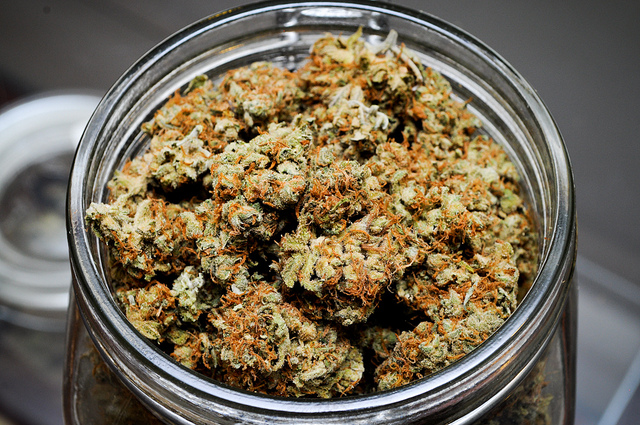
New research shows that a compound in marijuana can cure Alzheimer's disease.
Delta-9-tetrahydrocannabinol (THC), the main psychotic component in cannabis, reduced production of amyloid beta, the toxic proteins responsible for the brain disease, to slow and halt progression of the brain disease.
The compound also improved mitochondrial function and helped keep the brain healthy. Mitochondria are those parts of the cells that are responsible for converting sugar and oxygen into energy required for proper functioning of the cells.
Amyloid beta is a protein fragment produced during normal activity of the brain. It is found in the fatty membrane surrounding the nerve cells. In healthy individuals, these toxic proteins get cleared regularly, but as people age, due to various reasons, these proteins build up into plaques, according to the Alzheimer's Association.
"THC is known to be a potent antioxidant with neuroprotective properties, but this is the first report that the compound directly affects Alzheimer's pathology by decreasing amyloid beta levels, inhibiting its aggregation, and enhancing mitochondrial function," lead author of the study Dr Chuanhai Cao, a neuroscientist at the Byrd Alzheimer's Institute and the USF College of Pharmacy, said in a news release.
Several studies on marijuana have linked regular use to cognitive decline, poor attention, memory and IQ. So for the new study, neuroscientists at the University of South Florida in US created a cellular model of Alzheimer's disease and used low doses of the THC component so that adverse effects associated with the drug including THC toxicity and memory impairment, will be avoided.
At present there is no cure for the brain disease. Researchers revealed their plans to use their findings to develop a proper cure for Alzheimer's.
"Decreased levels of amyloid beta means less aggregation, which may protect against the progression of Alzheimer's disease. Since THC is a natural and relatively safe amyloid inhibitor, THC or its analogs may help us develop an effective treatment in the future," Dr Cao, added.
Legalization of medical marijuana has been a hot topic of discussion around the world from quite some time. Previous research has shown marijuana was promising for treating several medical conditions including glaucoma, rheumatoid arthritis, epilepsy and pregnancy morning sickness. In July, the same compound was found effective in shrinking tumours.
However, the researchers cautioned people against self-medicating the illegal drug. "It's important to keep in mind that just because a drug may be effective doesn't mean it can be safely used by anyone. However, these findings may lead to the development of related compounds that are safe, legal, and useful in the treatment of Alzheimer's disease," co-author of the study Neel Nabar, said.
The study has been reported in the online issue of Journal of Alzheimer's Disease.















